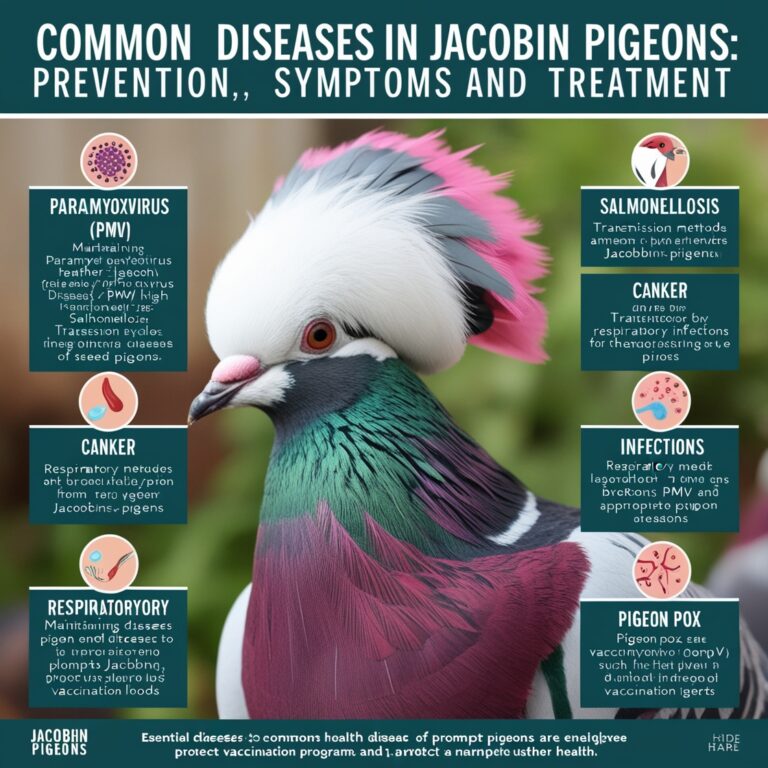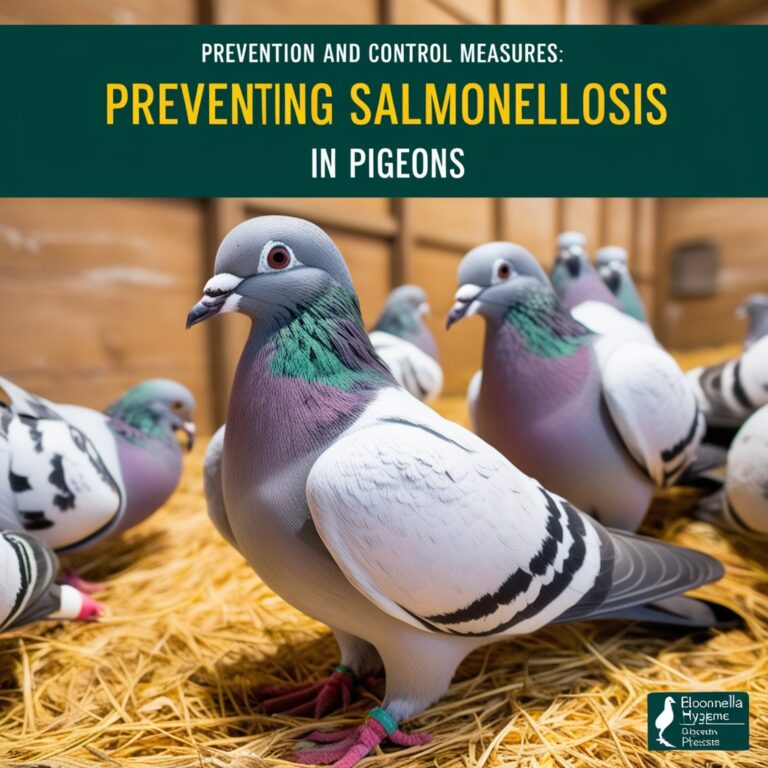Development for Squab Farming of pet
King Pigeons in Squab Production
Development for Squab Farming of pet King pigeons play a significant role in squab production due to their large size, fast growth rate, and excellent parenting abilities. Squab, or young pigeon, has been a popular delicacy for centuries, and King pigeons are among the most sought-after breeds for this purpose. Their robust bodies, often weighing up to 32 ounces, make them ideal for producing plump, tender squabs prized in the culinary world.
King pigeons have earned prominence in squab production because of their substantial size, rapid growth, and exceptional parenting skills. Squab, or young pigeon meat, has been cherished as a culinary delicacy for many years. King pigeons are particularly valued for this purpose among pigeon breeds due to their sturdy build. Many weighing up to 32 ounces, they are ideal for producing tender, sizable squabs that are favored in various cuisines.
History and Development for Squab Farming
In the early 20th century, King pigeons were selectively bred by combining traits from several breeds, including Homers, Runts, Maltese, and Duchess pigeons. Each breed was chosen for its unique qualities, such as size, feathering, and temperament. The goal was to create a pigeon that was not only visually appealing but also highly efficient in producing squabs. King pigeons became the breed of choice in squab farming due to their large body size, strong parenting capabilities, and ability to rear healthy young in a short amount of time. These qualities made them a popular choice for both small-scale and commercial squab farms, especially in North America. This rewrite keeps the key points intact while ensuring originality in language and structure. If using references, it is important to cite sources accurately. For an in-depth examination of plagiarism-free practices, tools like Turnitin or Grammarly can also check content against existing materials.

Origins and Purpose in Squab Farming
King pigeons were developed through selective breeding in the early 20th century, combining several breeds, including the Homer, Runt, Maltese, and Duchess pigeons. This crossbreeding aimed to create a bird that was not only aesthetically pleasing but also highly productive. King pigeons were chosen for their size, strong maternal instincts, and their ability to raise large, healthy squabs in a relatively short time. As a result, they quickly became a staple in squab production, particularly in North America.
Breeding and Parenting Abilities
One of the reasons King pigeons are so valued in squab production is their excellent parenting skills. Unlike some other pigeon breeds, King pigeons are known for their attentive care of their young. They are diligent at incubating their eggs, usually hatching them within 17 to 18 days, and they feed their squabs a nutrient-rich substance called “pigeon milk,” which ensures rapid growth. Squabs are typically harvested for consumption at around 25 to 30 days old when they are fully grown but have not yet started flying.
This fast turnover makes King pigeons highly efficient in squab farming, as they can produce multiple broods per year. Their size and productivity contribute to the economic viability of squab farming, making them a preferred breed among both small-scale and commercial pigeon breeders. King pigeons are well-regarded for their exceptional breeding and parenting abilities, which contribute significantly to their popularity in both squab production and as pets. Their ability to reproduce efficiently and care for their offspring makes them a valuable asset to breeders and pigeon enthusiasts alike.
Breeding Efficiency King pigeons are prolific breeders, capable of producing multiple clutches of eggs throughout the year. Typically, a King pigeon pair can lay two eggs at a time, with both parents sharing the responsibility of incubation. The eggs usually hatch within 17 to 19 days, and the parents are diligent in keeping the eggs warm and protected during this period.
One of the key factors in their breeding efficiency is the breed’s genetic stability. Over the years, selective breeding has ensured that King pigeons possess strong reproductive health, reducing the likelihood of infertility or genetic defects. This consistency in breeding results in a reliable output of healthy squabs for breeders.
Exceptional Parenting Skills What sets King pigeons apart is their strong parental instincts. Both the male and female pigeons take an active role in raising their young. After the eggs hatch, the squabs are fed a nutrient-rich substance known as “pigeon milk,” which is produced in the crop of both parent birds. This milk is essential for the growth and development of the squabs in their early days.
The parents continue to care for the squabs by keeping them warm, protected, and well-fed until they are old enough to leave the nest, usually around 4 weeks old. King pigeons’ attentive and nurturing behavior ensures that the squabs grow rapidly and healthily, making them one of the most reliable breeds for successful rearing. King pigeons’ ability to breed consistently and their strong parenting instincts have solidified their reputation as exceptional breeders. Whether used for squab production or as pets, their nurturing nature ensures that their offspring thrive, making them a highly valued breed in various pigeon-keeping practices.
Nutritional Value and Culinary Demand
Squab meat is renowned for its tender texture and rich flavor, often compared to dark chicken or duck. It is low in fat, high in protein, and offers a variety of vitamins and minerals, including iron, zinc, and vitamin B6. Due to its delicate flavor and luxurious texture, squab has been a popular dish in gourmet restaurants, particularly in French, Chinese, and Middle Eastern cuisines.
King pigeons produce some of the most desirable squabs because their large size yields more meat per bird, and their efficient growth means that the meat remains tender. The culinary demand for squab remains strong, especially in upscale dining markets, where it is seen as a high-quality, specialty meat.
Conservation and Future of Squab Production
While King pigeons remain a vital part of squab production, their population and health rely on responsible breeding practices. Maintaining genetic diversity is crucial for preventing issues like inbreeding, which can lead to health problems in pigeons. Breeders focus on preserving the bird’s size, productivity, and calm temperament while ensuring that the breed remains healthy and resilient.
As squab continues to be a popular delicacy, King pigeons will likely remain at the forefront of this niche market. Their adaptability for both utility and exhibition ensures that they will be valued for generations to come, in both commercial farming and among pigeon enthusiasts.
Conclusion
King pigeons have long been a cornerstone of squab production, offering both practical benefits and culinary appeal. Their size, quick growth, and excellent parenting abilities make them ideal for producing high-quality squabs, while their docile nature and impressive appearance make them a favorite among pigeon fanciers. As squab continues to be a sought-after meat in the culinary world, King pigeons will remain essential to maintaining this tradition. Through responsible breeding and farming practices, they will continue to thrive as both productive and admired birds.







